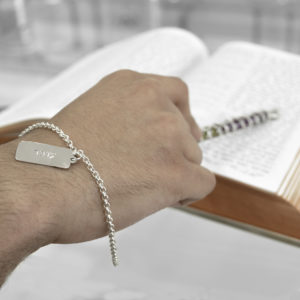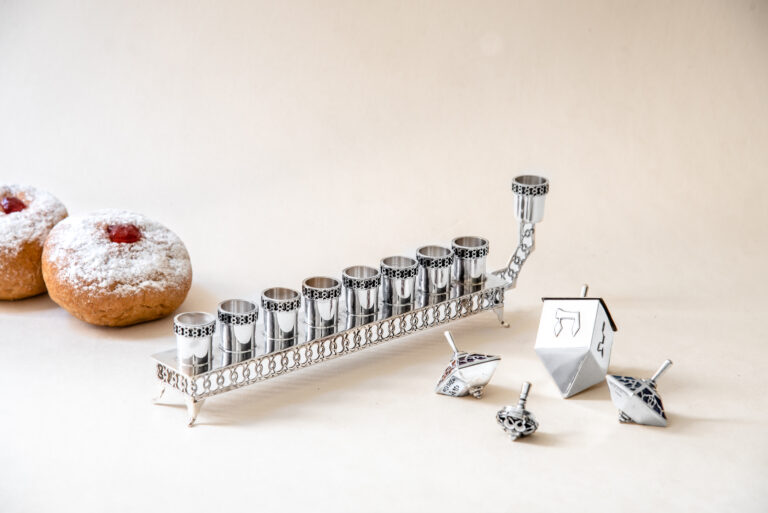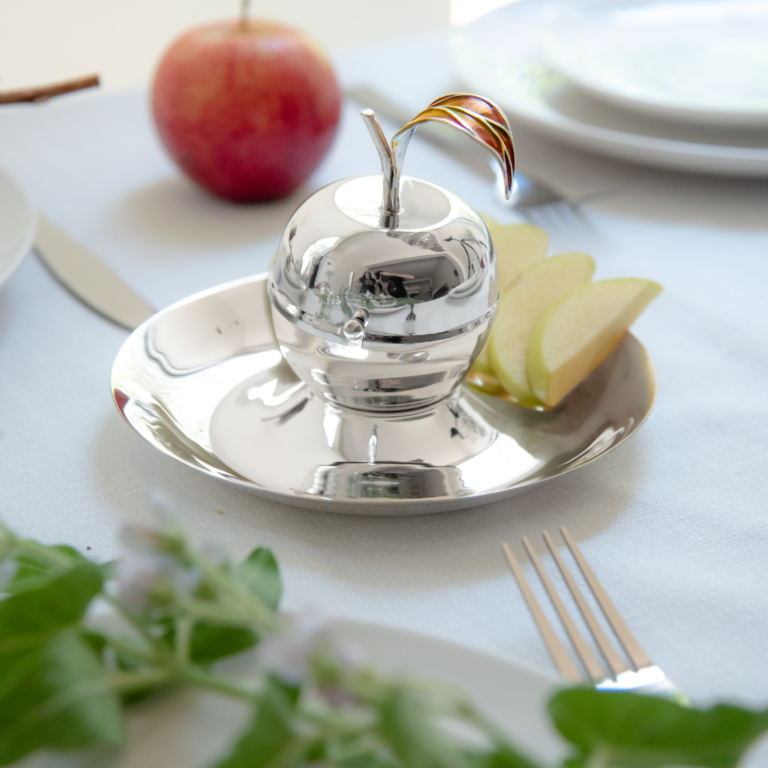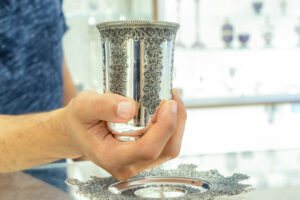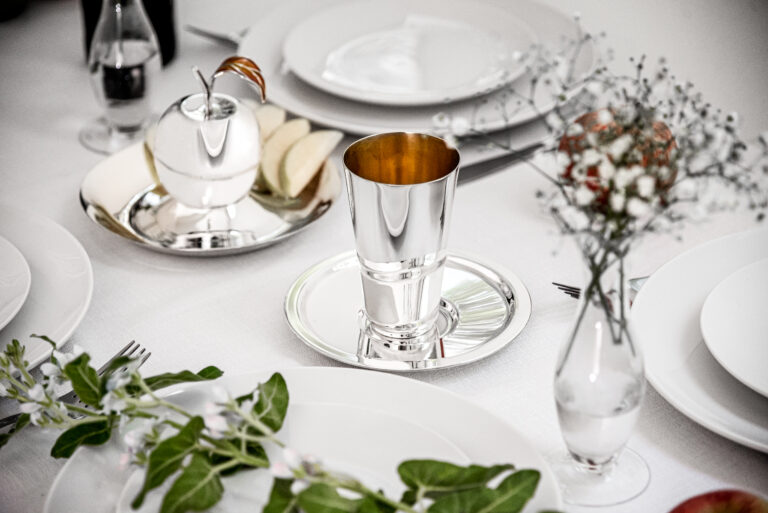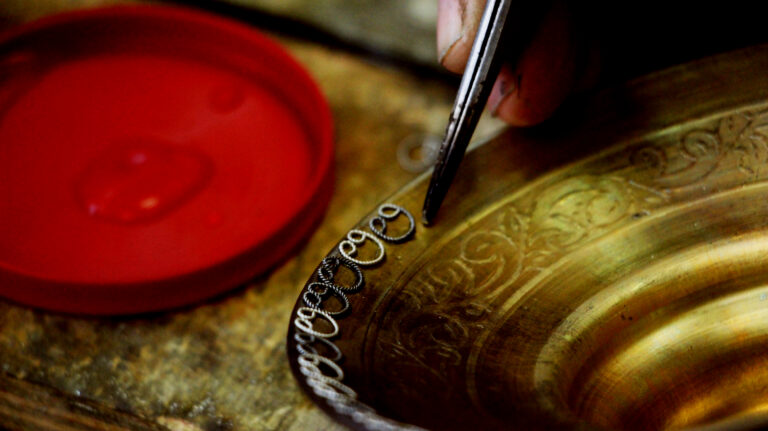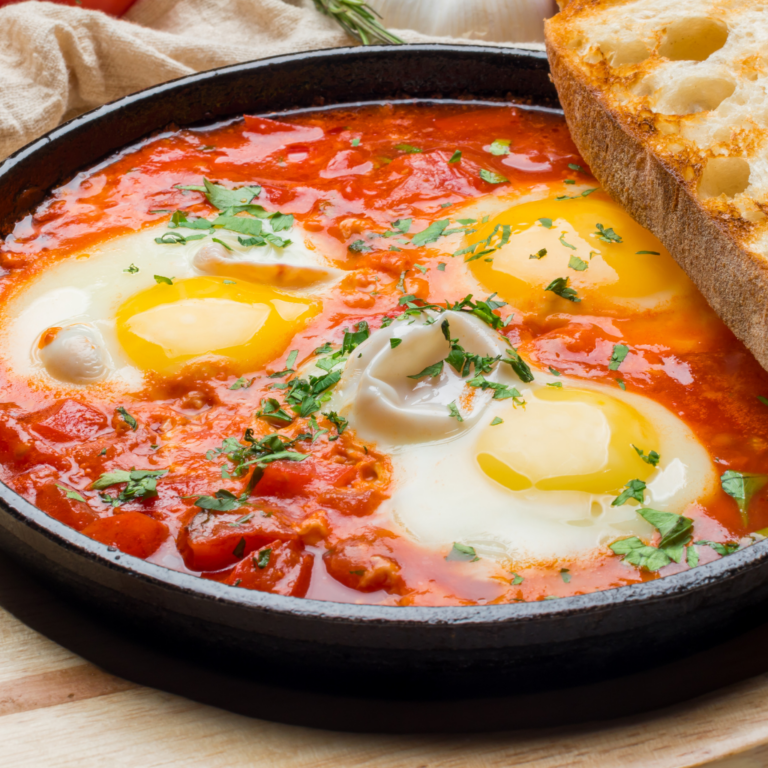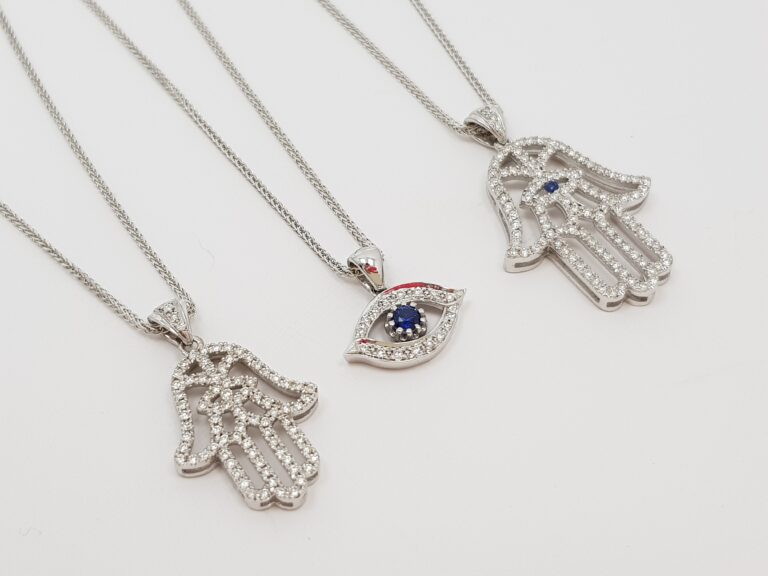Jerusalem, the holy city of the Abrahamic religions, is a popular tourist destination for its historical and cultural significance. Located in the heart of Israel, Jerusalem boasts a rich history that dates back thousands of years. The city is home to many iconic landmarks and attractions, making it a must-visit destination for travelers worldwide.
In this article by Nadav Art, we will highlight some of the top things to do in Jerusalem, from visiting historical sites to indulging in delicious local cuisine. So, pack your bags and prepare for an adventure in one of the world’s most fascinating cities.
To listen to the entire article, please click on the play button.
Top 5 Things To Do In Jerusalem
Yad Vashem – The World Holocaust Remembrance Center
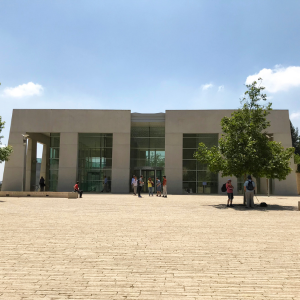 A visit to Yad Vashem is a must-do for anyone visiting Jerusalem. This museum serves as a reminder of the atrocities committed during the Holocaust and honors the memory of the six million Jews who lost their lives.
A visit to Yad Vashem is a must-do for anyone visiting Jerusalem. This museum serves as a reminder of the atrocities committed during the Holocaust and honors the memory of the six million Jews who lost their lives.
The museum houses a vast collection of artifacts, photographs, and personal stories of survivors. Visitors can take a self-guided tour or join a guided tour to learn more about the events of the Holocaust and its impact on Jewish history.
Old City of Jerusalem
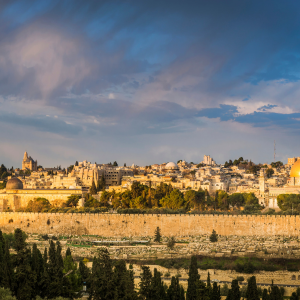 The Old City of Jerusalem is a UNESCO World Heritage Site and a must-visit destination for anyone interested in history and culture. The Old City contains several important religious sites, such as the Western Wall, the Dome of the Rock, and the Church of the Holy Sepulchre.
The Old City of Jerusalem is a UNESCO World Heritage Site and a must-visit destination for anyone interested in history and culture. The Old City contains several important religious sites, such as the Western Wall, the Dome of the Rock, and the Church of the Holy Sepulchre.
Tourists can venture through this unique location’s narrow streets, markets, and historical monuments.
Check out our Jerusalem kiddush cups collection.
Israel Museum
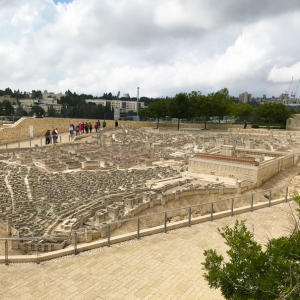 The Israel Museum is the most important cultural institution in Israel and one of the world’s leading art and archaeology museums. The museum’s collections include Jewish and Israeli art, archaeology, and ethnography.
The Israel Museum is the most important cultural institution in Israel and one of the world’s leading art and archaeology museums. The museum’s collections include Jewish and Israeli art, archaeology, and ethnography.
One of the museum’s highlights is the Shrine of the Book, which houses the Dead Sea Scrolls, one of the most significant archaeological discoveries of the 20th century.
Western Wall
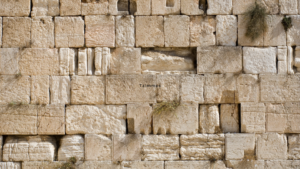 The Western Wall, known as the Wailing Wall, is one of Judaism’s most important religious sites. Located in the Old City of Jerusalem, the Western Wall is a remnant of the Second Temple and is considered the holiest site where Jews can pray.
The Western Wall, known as the Wailing Wall, is one of Judaism’s most important religious sites. Located in the Old City of Jerusalem, the Western Wall is a remnant of the Second Temple and is considered the holiest site where Jews can pray.
Visitors can watch Jewish worshippers pray and place notes in the crevices of the Wall, a tradition that dates back centuries.
Mount of Olives
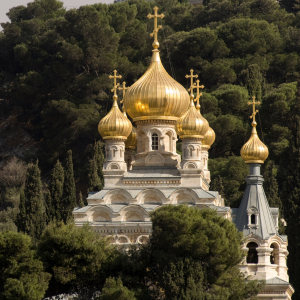 The Mount of Olives is a hill located east of the Old City of Jerusalem and is one of the most iconic landmarks in the city.
The Mount of Olives is a hill located east of the Old City of Jerusalem and is one of the most iconic landmarks in the city.
The hill has several important religious sites, including the Church of All Nations, the Garden of Gethsemane, and the Prophet’s Tomb. Visitors can take in the stunning views of the Old City and explore the religious and cultural significance of the hill.
* it is recommended to have a tour inside our handmade Judaica factory with the artist & designer Avi Nadav.
during the tour you you’ll be able to see how traditional items have been made and talk with the artists and producers of the Nadav Art factory
Avi Nadav, a third-generation artist and silversmith, trained at Bezalel Academy of Arts and Design in Jerusalem.
Our work consists of handcrafted art, from traditional silverware to a more modern line of Judaica, tableware, and jewelry made from anodized aluminum.
Check out our Jerusalem, candlesticks collection
How do you spend a day in Jerusalem?
Jerusalem has a rich history and cultural significance, making it a must-visit destination for travelers worldwide.
With so much to see and do in this charming city, planning a day trip that covers all the top attractions can be challenging. Here’s how to spend a day in Jerusalem to make the most of your time.
Morning: Explore the Old City
 Start your day by exploring the Old City of Jerusalem, one of the city’s most historic and fascinating parts.
Start your day by exploring the Old City of Jerusalem, one of the city’s most historic and fascinating parts.
Begin at the Jaffa Gate, one of the seven main entrances to the Old City, and explore the narrow alleyways leading you to the Western Wall, the holiest Jewish site. Take a moment to place a prayer note on the Wall, a tradition that dates back centuries.
Once you have visited the Western Wall, go to the Church of the Holy Sepulchre, considered one of the most sacred places in Christianity.
According to tradition, the church is constructed on the very site where Jesus was crucified and laid to rest. Visitors can discover the various chapels and locations housed within the church, including the burial place of Jesus.
Afternoon: Visit the Israel Museum
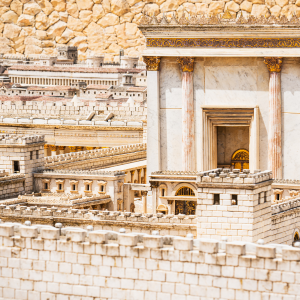 After a busy morning exploring the Old City, take a break and head to the Israel Museum, just a short drive away.
After a busy morning exploring the Old City, take a break and head to the Israel Museum, just a short drive away.
The museum is Israel’s most significant cultural institution and houses a vast collection of Jewish and Israeli art, archaeology, and ethnography.
One of the museum’s highlights is the Shrine of the Book, which houses the Dead Sea Scrolls, one of the most significant archaeological discoveries of the 20th century. Visitors can also explore the outdoor art garden, which features sculptures and installations by renowned Israeli artists.
Check our old
Evening: Sunset at The Mount of Olives
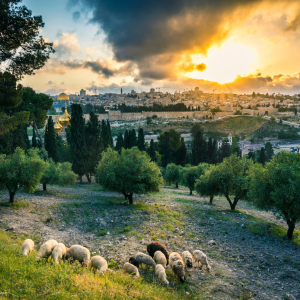 End your day with a visit to the Mount just east of the Old City. This hill is of great religious significance and houses several important sites, such as the Garden of Gethsemane, the Church of All Nations, and the Tomb of the Prophets.
End your day with a visit to the Mount just east of the Old City. This hill is of great religious significance and houses several important sites, such as the Garden of Gethsemane, the Church of All Nations, and the Tomb of the Prophets.
Watching the sunset over the city from this vantage point is a truly breathtaking experience, as you can enjoy stunning panoramic views of the Old City and the surrounding landscape.
After sunset, head back to the Old City and enjoy dinner at one of the many local restaurants. Indulge in traditional Middle Eastern cuisine, such as falafel, hummus, and shawarma, and soak up the vibrant atmosphere of this historic city.
Check out our mezuzah case made of iron with olives tree design
How many days do you need in Jerusalem?
The answer to this question depends on your interests and how much time you have available. However, most visitors to Jerusalem recommend spending at least three to four days in the city to see the major attractions and get a feel for the city’s unique atmosphere.
Within three to four days, visitors can explore the Old City’s historic sites, visit the Israel Museum and Yad Vashem, and take a day trip to the Dead Sea. Additionally, spending extra days in Jerusalem can allow visitors to see more of the city’s hidden gems, such as the Mahane Yehuda Market.
For those who are short on time, it is still possible to see some of the major attractions in Jerusalem in just one or two days. However, it’s essential to prioritize what you want to see and plan you’re itinerary accordingly.
What is Jerusalem’s number 1 attraction?
The Western Wall, also known as the Wailing Wall, is the number one attraction in Jerusalem. Located in the heart of the Old City, the Western Wall is the last remaining part of the Second Temple, which the Romans destroyed in 70 CE.
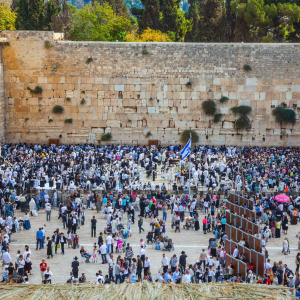 The Western Wall is the holiest site in Judaism and is a place of prayer and pilgrimage for Jews worldwide. Visitors can approach the Wall and place a prayer note in the crevices between the stones, a tradition that dates back centuries. The atmosphere at the Western Wall is compelling, and it’s common to see people deep in prayer and contemplation.
The Western Wall is the holiest site in Judaism and is a place of prayer and pilgrimage for Jews worldwide. Visitors can approach the Wall and place a prayer note in the crevices between the stones, a tradition that dates back centuries. The atmosphere at the Western Wall is compelling, and it’s common to see people deep in prayer and contemplation.
In addition to its religious significance, the Western Wall is a historic site and an architectural marvel. The Wall stands over 60 feet high and comprises massive limestone blocks that weigh up to several tons each.
Visiting the Western Wall is an unforgettable experience, and it’s no wonder it is considered Jerusalem’s number one attraction. Whether you’re interested in history, religion, or architecture, the Western Wall is a must-see destination that should be at the top of any traveler’s list.
Check out our Jerusalem jewelry collection.
What is a typical breakfast in Israel?
In Israel, a typical breakfast is known as “Israeli breakfast” or “Israeli-style breakfast.” It is a hearty and delicious meal that often includes a variety of savory and sweet dishes.
Some standard components of an Israeli breakfast include:
- Bread and spreads: Fresh bread, such as pita or challah, is often served with various spreads, including hummus, tahini, labneh (strained yogurt), and cheese.
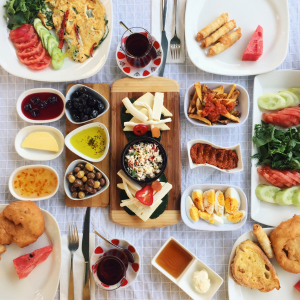 Eggs: Eggs are a staple of Israeli breakfast and are usually served in several ways, such as shakshuka (eggs poached in a spicy tomato sauce), omelets, or scrambled eggs.
Eggs: Eggs are a staple of Israeli breakfast and are usually served in several ways, such as shakshuka (eggs poached in a spicy tomato sauce), omelets, or scrambled eggs.
- Salad: Fresh, chopped vegetables are often served as a salad with breakfast. Common ingredients include cucumbers, tomatoes, onions, and peppers.
- Cheese and olives: Various cheeses, such as feta or goat cheese, and olives are often served as part of an Israeli breakfast.
- Juice and coffee: Freshly squeezed juice, such as orange or grapefruit, and coffee are typically served with breakfast.
Israeli breakfasts are known for being filling and delicious, and they provide a great start to a busy day of sightseeing or exploring the city.
How much do you tip in Israel?
 A typical tip for a waiter in Israel is around 12% of the total bill. If the service is simply acceptable, a premium of 10% may be appropriate. It’s important to note that tipping is not mandatory in Israel but is a way to show appreciation for good service.
A typical tip for a waiter in Israel is around 12% of the total bill. If the service is simply acceptable, a premium of 10% may be appropriate. It’s important to note that tipping is not mandatory in Israel but is a way to show appreciation for good service.
What is allowed and forbidden in Jerusalem?
Some certain customs and traditions should be observed when visiting the city. Here are some common questions regarding what is allowed and forbidden in Jerusalem:
Can I wear shorts in Jerusalem?
Yes, you can wear shorts in Jerusalem. However, it is recommended to dress modestly when visiting religious sites, such as the Western Wall or the Temple Mount. It’s best to avoid shorts that are too short or revealing.
Can you wear jeans in Jerusalem?
Yes, you can wear jeans in Jerusalem. Jeans are a common and acceptable form of dress in the city.
Are tattoos allowed in Israel?
 Tattoos are allowed in Israel, but they are not as common among Jewish people for religious reasons. Some Jews believe the body is a sacred vessel and should not be defaced with tattoos.
Tattoos are allowed in Israel, but they are not as common among Jewish people for religious reasons. Some Jews believe the body is a sacred vessel and should not be defaced with tattoos.
Can Jews drink alcohol?
Yes, Jews are allowed to drink alcohol in Israel. Alcohol is readily available in the country and is a standard part of social and religious celebrations.
What is not allowed in Israel?
Certain things are prohibited in Israel, such as illegal drugs, prostitution, and public nudity. It’s also important to respect religious customs and practices, such as keeping kosher and observing the Sabbath.
Can Jews be cremated?
Judaism traditionally prohibits cremation as it is believed that the body is a vessel for the soul and should be treated respectfully.
However, some Jews may choose to be cremated for personal or cultural reasons. It’s essential to consult with a rabbi or religious authority for guidance.
Conclusion
Jerusalem has a rich history and culture that offers visitors a unique and unforgettable experience.
From exploring the Old City’s winding alleyways to visiting the holy sites of Judaism, Christianity, and Islam, there is no shortage of things to do in Jerusalem. Whether interested in history, religion, food, or culture, this city has something for everyone.
With its warm hospitality, welcoming atmosphere, and stunning natural beauty, Jerusalem is truly a destination that should be on everyone’s travel bucket list. So pack your bags and get ready to discover all these fantastic city offers!
